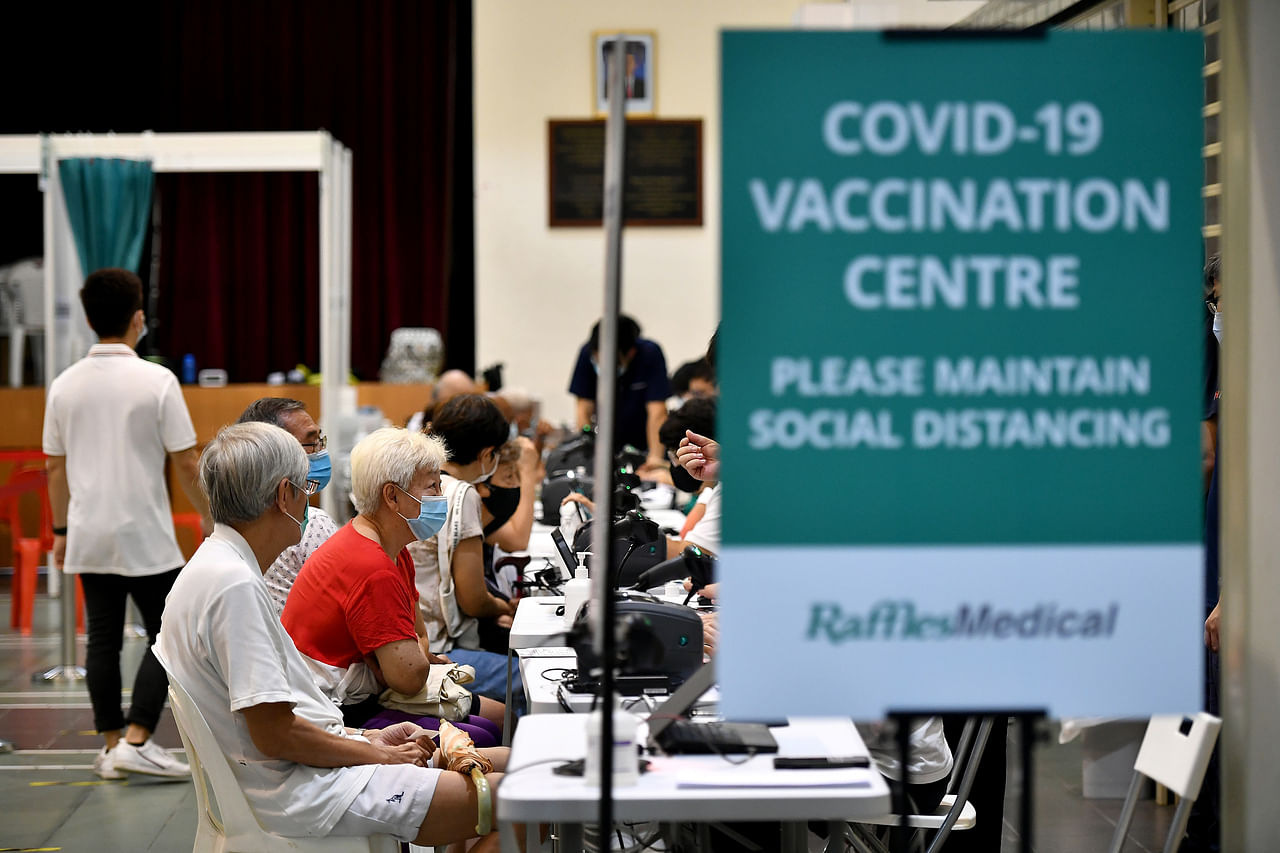Covid-19 vaccines helped prevent 8,000 deaths in Singapore during Delta wave: MOF report
Sign up now: Get ST's newsletters delivered to your inbox

Vaccinated people aged 50 to 59 had a 4 per cent chance of hospitalisation, and a 1 per cent chance of falling severely ill.
ST PHOTO: LIM YAOHUI
SINGAPORE - The nationwide vaccine roll-out prevented around 8,000 Covid-19 deaths during the peak of the Delta wave last year.
Vaccines also helped the country avoid 33,000 severe cases and 112,000 hospitalisations, according to a report on the impact of various measures in the past two Budgets, in 2020 and 2021, to mitigate the impact of the pandemic.
These figures, based on new estimates from the Ministry of Health (MOH), were published on Thursday (Feb 17) in the 58-page report issued by the Ministry of Finance. It comes ahead of this year's Budget statement on Friday (Feb 18).
To arrive at its conclusions, MOH first looked at estimates of vaccine effectiveness in Singapore.
One local study found that unvaccinated people were more likely to get the virus from their infected household contacts, compared with vaccinated people. In such circumstances, vaccines were 56.4 per cent effective against infection.
The ministry also looked at age-specific differences in outcomes among Covid-19 cases reported between Aug 1 and Dec 31 last year, when the Delta variant of the coronavirus was dominant.
As a general rule, unvaccinated people were much more likely to be hospitalised, develop severe illness, or die - especially if they were also older.
For instance, vaccinated people aged 50 to 59 had a 4 per cent chance of hospitalisation, and a 1 per cent chance of falling severely ill.
But unvaccinated people in the same age group had a 34 per cent chance of being hospitalised and a 10 per cent chance of falling severely ill.
For older people aged 80 and above, the chance of hospitalisation for unvaccinated people was 88 per cent, compared with 51 per cent for the vaccinated.
Their chances of becoming severely ill were 41 per cent for the unvaccinated and 10 per cent for the vaccinated.
Using these figures, MOH simulated the number of hospitalisations, severe cases and deaths that would likely have taken place if vaccines were not available.
It estimated that the country would have seen more than double the 198,361 Covid-19 cases actually reported during the five-month period from August to December 2021.
The country would also have seen eight times the hospitalisation rate, nearly 12 times the number of severe cases and 11 times the number of total deaths.
"These estimates likely underestimate the benefits of vaccination, as they do not factor in the effect of vaccinations in reducing the chain of transmission and the likelihood of worse mortality outcomes if healthcare facilities had to manage a significantly higher caseload," the report noted.
It added that Singapore's vaccination programme helped the country keep death rates low throughout the pandemic.
As at Feb 15, the country had seen 16.7 Covid-19 deaths per 100,000 population.
This is on a par with similarly highly vaccinated countries such as South Korea and Japan, which saw 14 and 16.5 deaths per 100,000 population respectively.
In contrast, countries such as the United States have a relatively high death rate of around 277 deaths per 100,000 population, and lower vaccination rates.



